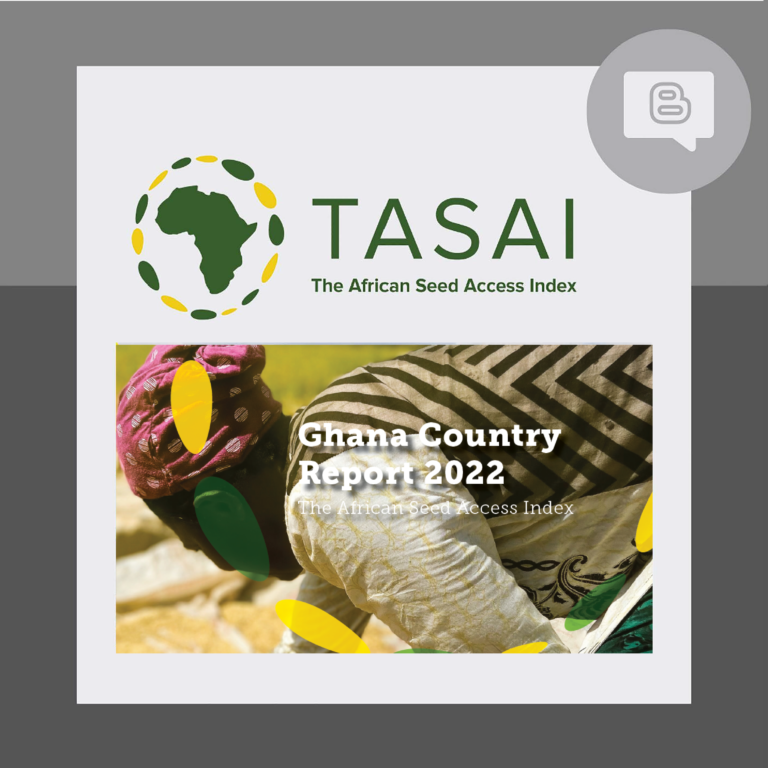January 16, 2023

The 2022 TASAI Ghana Country Report summarizes the findings of the TASAI study conducted in Ghana in 2021 by the TASAI team and two local seed industry experts. The results highlight some positive developments since the last TASAI study in 2020. For maize, rice, soya bean, and cowpea, Ghana’s formal seed system is still in its early growth stage of development. Yet, recent government and institutional initiatives are ensuring that the seed system continues to progress.
Since its inception in 2017, the Planting for Jobs (PFJ) program has enhanced the seed sector supporting breeding programs up to providing a reliable channel to market seed in Ghana. Under the research and development category, the number of public breeders increased from 21 to 30 between 2019 and 2021. In addition, out of the 43 varieties released in the same period, 25 had special features. Among those, 17 were climate-smart features, 11 had use-related features and 7 had industry-demanded features indicating that public and private seed breeders are responding to climate variability and emerging market needs. As far as industry competitiveness, Ghana’s competitive seed market is characterized by a wide range of seed growers. The 2021 HHI scores indicate that market concentration for maize, rice, and soya bean was low. In fact, the number of seed companies that produced and marketed seed increased between 2019 to 2021 (from 29 to 47 for maize and 19 to 41 for rice seed companies).
Even though PFJ’s establishment illustrates a positive change in Ghana, the program requires a more effective monitoring and evaluation process to improve its effectiveness. Furthermore, between 2016 and 2021, the length of Ghana’s variety release process declined from 42 months to 11 months. As anticipated, seed companies’ level of satisfaction with the variety release process improved from fair (42%) to good (62%) in the same period.
The National Seed Trade Association of Ghana (NASTAG) is one of the primary sources of institutional support in Ghana’s formal seed system. From 2017 to 2021, NASTAG membership increased from 32 to 58 members. During this time, the association achieved several milestones related to the promotion and use of certified seed. Most notably, NASTAG initiated and convened dialogues that led to the passing of the Plant Variety Protection Act in 2020. Finally, in a push to enhance the way information is disseminated to agricultural households in Ghana, extension officers are making good use of digital classroom systems and educational apps such as Crop Farmers App, AgriApp, and OneSoil. Ghana’s agro-dealer network also appears to be improving, as evidenced by the positive opinion ratings provided by the seed companies surveyed. These are critical steps for more sustainable service provision to smallholder farmers in Ghana.
The report was published following a successful dissemination meeting in Accra, Ghana on November 10, 2022, where findings were validated and discussed by members of Ghana’s public and private seed sectors.